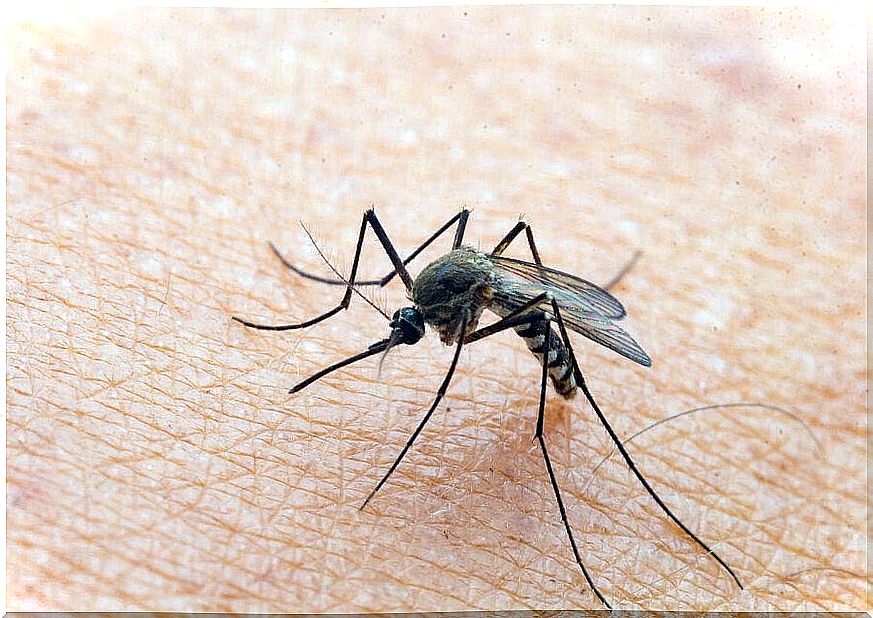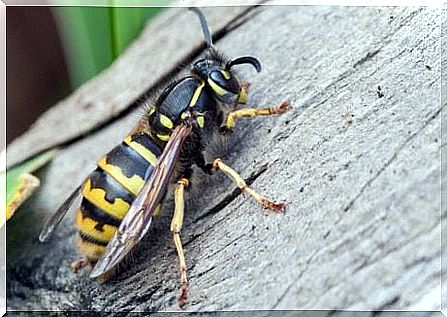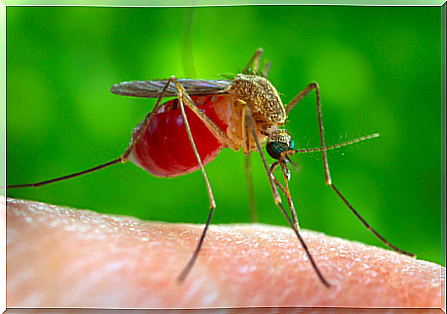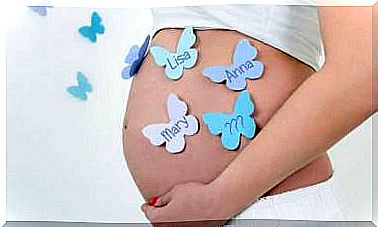Insect Bites And Stings: What Are The Consequences Of This In Children?

Children are easy prey for insects. That’s why it’s important for parents to know how to prevent and treat insect bites and stings. They can be harmful to your child’s health.
The prevention and treatment of insect bites and stings usually lies with the parents. The way the body reacts varies. This depends on the type of insect but also on other factors. Most bites and stings cause symptoms such as:
- pain
- swelling
- redness
- itch
Whatever kind of bites or stings your child gets or what symptoms appear, avoid rubbing and scratching. This spreads the poison and can cause an infection.
How do insect bites and stings affect children?
Below you will find an overview of the most common insect bites and stings in children.
ants
If your child has been bitten by an ant, apply soap and warm water to the area of the bite. You can also use an anti-inflammatory ointment to reduce swelling and itching.
Finally, make sure that any blisters do not burst, as this can inflame and cause additional pain.
bees
If one has stung your child, you will likely find a small black sting in your child’s skin. Carefully remove the stinger with tweezers.
Keep the swelling under control with ice and keep the affected part of the body elevated. To relieve pain and itching, you can use an anti-histamine ointment or a mixture of baking soda and calamine lotion.

mosquitoes
Mosquito bites are more common. If your child has been bitten by a mosquito, wash the area gently with cold, soap-free water. Use a topical treatment to soothe the itching.
Spiders
Most spider bites are not harmless. There are no spiders in the Netherlands that can cause real problems. However, some spider bites from spiders abroad can cause blisters and necrotic wounds. Other spiders can cause symptoms such as:
- chestpain
- nausea
- vomiting abdominal pain
If your child shows any of these symptoms, see a doctor immediately.
red mites
The symptoms of a red mite bite usually appear 1 to 3 hours after the bite. This includes severe itching that can last for several days. The affected area may also become red and swell like a blister.
Successful treatment includes taking a cool bath or shower. You can also use other remedies to reduce the itching such as:
- a cold compress
- calamine lotion
- anti-inflammatory ointment
How do you calm your child from insect bites and stings?
Below are some suggestions to help calm your child if he or she has been stung or bitten by an insect.
- Stay calm so that your child does not become more anxious.
- Reassure your child with comforting words.
- Treat the itch according to the instructions above.
- Use ice or a cold compress to relieve further itching and pain.
- Reapply insect repellent.
- Distract your little one from the pain and itch with a fun activity.
Advice for avoiding insect bites and stings in children
The advice below is to protect your child against insect bites and stings.
- Use safe and effective repellents.
- Avoid soap, ointment and other products that contain a lot of perfume.
- Have your child wear long-sleeved clothes and pants if possible.
- Take extra care in woods, bushes and grassy areas.
- If you have pets, take steps to avoid flea infestations.

When should I see a doctor?
If your child shows any of the following symptoms, see a doctor:
- if the pain or itching worsens.
- signs of infection, such as redness, localized or general fever, swelling or loss of fluid in the skin.
- fever.
- hives or rash.
- nausea and vomiting.
- breathing problems.
- pressure or pain in the throat or chest.
So now you know what the consequences are of insect bites and stings in children and how to treat them. As you have seen, there is usually no cause for concern. These incidents happen often.
Remember that your little one’s reaction will depend on the type of insect and your child’s personal organism.







